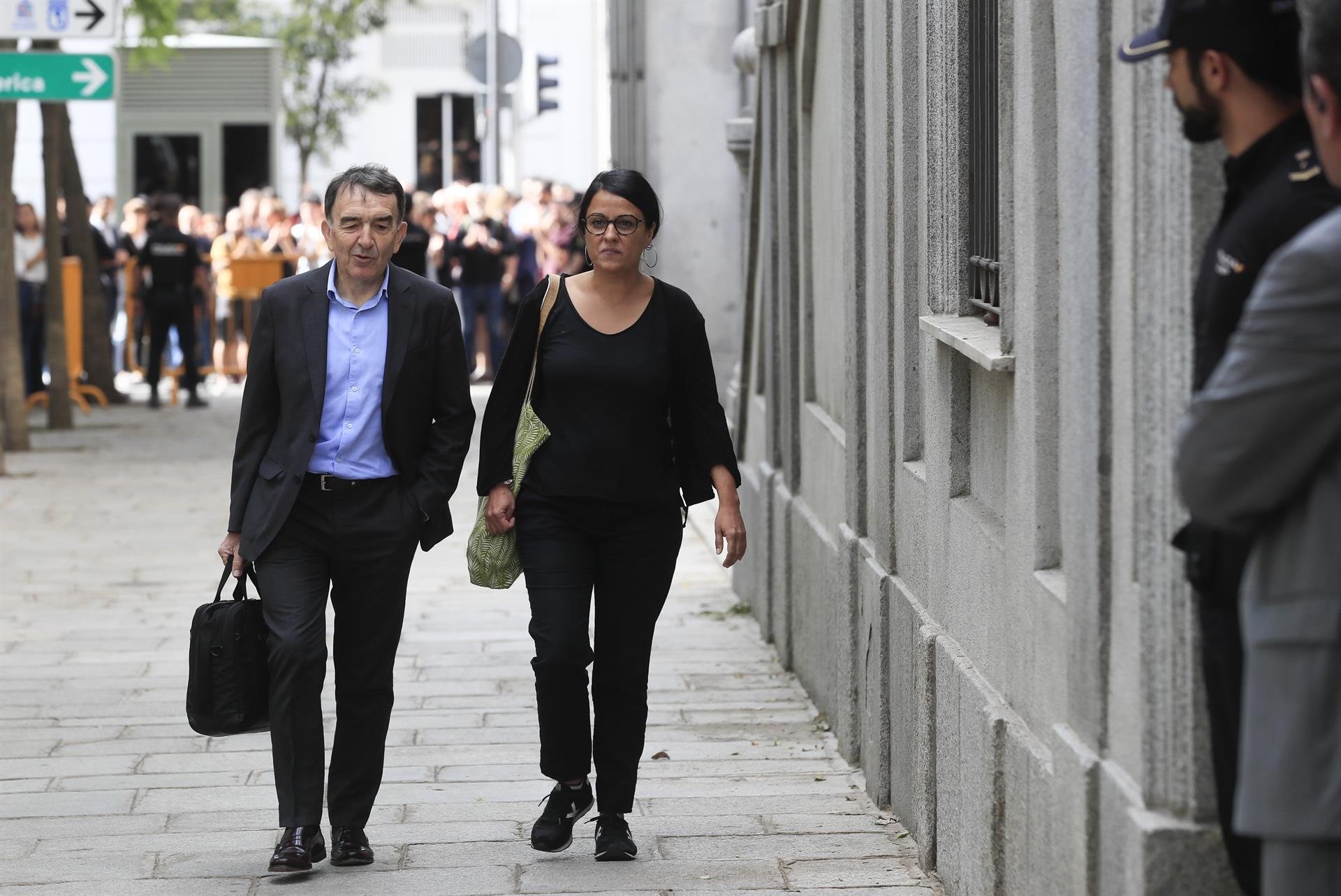Former CUP deputy Anna Gabriel appeared in Spain's Supreme Court today for little more than ten minutes. Following the surprise return to the Spanish state by the Catalan pro-independence politician in July, after four and a half years in a Geneva exile, this was her second re-encounter with Spanish justice with regard to her role in the political events of autumn 2017 in Catalonia. Emerging from the court, Gabriel, with tears in her eyes, asked that her case "be closed or sent to Barcelona", referring to the ordinary courts. After making her brief investigative statement, she explained that judge Pablo Llarena had only asked her "if she had been summonsed by the Constitutional Court in relation to her parliamentary activity". She declined to respond to the lawyer representing the far-right Vox party, which is continuing with the private prosecution it has been conducting throughout the case.
Visibly moved, the woman who was the Catalan parliamentary leader for the far-left, pro-independence CUP party during the events of 2017 affirmed that "the legitimate aspiration of a people should never have been judicialized", and that, despite the repression, "the principles remain intact”. She thanked the “anti-repressive solidarity of the party members” since she left for Switzerland in early 2018. CUP sources have stated that Gabriel will continue living in Switzerland where "she has professional and activist commitments", in relation to the management position she holds in the UNIA union in Geneva. The judge did not impose any restrictive measures on her and she continues to enjoy freedom of movement.
The independence movement surrounds her
An important corss-section of the independence movement sturned out to support the former CUP MP, starting with twenty members of CUP and the spokesperson of the party secretariat, Maria Sirvent. The ERC entourage was led by Oriol Junqueras, who appeared at the doors of the Supreme Court after warning that Catalan independence "is not a question of deadlines or time". The vice-president of Junts, Josep Rius, was also there, as well as Jaume Asens (En Comú Podem), deputies Mertxe Aizpurua and Jon Iñarritu (EH Bildu), and Néstor Rego (BNG). The president of Òmnium Cultural, Xavier Antich, also attended.
The Boya precedent
Gabriel appeared voluntarily and completely by surprise on July 19th before the Supreme Court and at that time judge Llarena remanded her at large, with permission to move throughout the state, pending the resolution of her judicial procedure. For having promoted Catalonia's independence referendum and process in 2017, she has been prosecuted for disobedience, a crime that does not entail prison, but rather, a ban on holding public office and a fine. Since she is no longer a member of the Parliament of Catalonia, her case is not within the jurisdiction of the Supreme Court and, if judge Llarena does not close the case, her defence is confident that it will be sent to the ordinary courts, which should mean an investigating judge in Barcelona.
The objective for Gabriel's defence, which is now led by the lawyer Iñigo Iruin - who is also defending the former minister Meritxell Serret, who herself returned from exile this year - is to avoid that the ex-MP faces trial at all, with the precedent of the strongly-argued acquittal of her ex-CUP companion Mireia Boya by the High Court of Catalonia (TSJC), in October 2020, after being tried alongside the pro-independence members of the Parliamentary Bureau headed by Carme Forcadell. Gabriel thus knows that if, in the end, she is tried in a criminal court in Barcelona, she is likely to be acquitted, like Boya.

